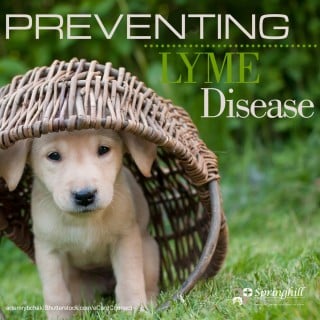A highly contagious respiratory virus, the canine parainfluenza virus is one of the most common pathogens that causes kennel cough in dogs. Though the clinical symptoms resemble canine influenza, the two viruses are unrelated and require different vaccines for protection.
The virus is usually transmitted through the air and can be excreted from infected dogs for two weeks after infection. Risk factors for developing canine parainfluenza are highest for dogs who come from shelters, rescue centers, breeding kennels or pet stores; dogs who are boarded; engage with other dogs daily, such as at the dog park; or participate in events or competitions.
The clinical symptoms include:
– Dry or moist cough
– Low grade fever
– Nasal discharge
– Lack of energy
– Loss of appetite
The virus is generally diagnosed through several tests, performed once parainfluenza is suspected in your pooch. Other diagnostic tools we use include a chest x-ray to check for the presence of pneumonia and blood testing to rule out other possible illnesses. The sooner we can make a proper diagnosis, the sooner we can begin treatment and get your dog back to her normal self. Treatment for this virus is done through a variety of means, including antibiotics and antiviral drugs.
There are ways you can assist your dog’s recovery at home including:
– Limit exercise and play, allowing her to rest more.
– Keeping her away from other dogs in the household for the duration of medical treatment and at least one week following, as she is still contagious.
– Change food to soft food if she has throat irritation. Additionally, encourage her to stay hydrated by providing adequate clean, fresh water at all times.
– Avoid situations and activities that may cause undue stress for her.
There are vaccines available for canine parainfluenza virus, but these are rendered ineffective if your dog already has the virus. If you suspect your pooch may have canine parainfluenza virus or would like to make sure she is up to date on her vaccine, contact us at the clinic.



